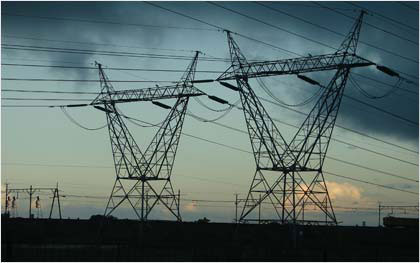 Everyone knows water conducts electricity.
Everyone knows water conducts electricity.
What makes water a good conductor is not the water itself but the positive and negative ions dissolved in it (e.g., Sodium, Calcium, Chloride, Carbonate, etc.). The more ions there are dissolved in water, the more conductive it becomes. Ultrapure water is not a good electrical conductor, as evidenced by the 18 megohm-cm resistivity (.055µS/cm conductivity). Water becomes electrically conductive with just a few ppm of dissolved solids/ions. Water supplies vary substantially in the types and amounts of dissolved solids present. The overall conductivity of the water is the cumulative effect of the blend of ions.
Temperature significantly affects the conductivity/resistivity of water requiring instrumentation to be temperature compensated to 25°C.
So, which do you want to measure, conductivity or resistivity? Water resistivity is best for measuring high to ultra-pure water, while conductivity measurement works best for applications from municipal water supplies to reverse osmosis systems.
